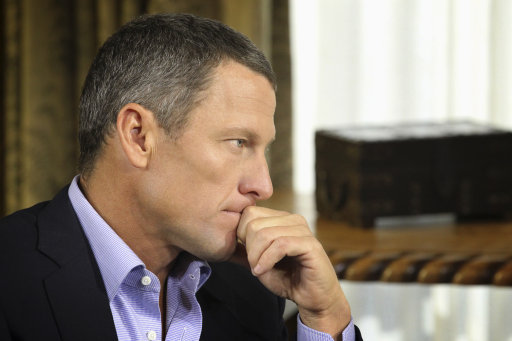Lance Armstrong – are we looking in a mirror?

In his book It's Not about the Bike, Lance Armstrong wrote some years ago, "At the end of the day, if there was indeed some Body or presence standing there to judge me, I hoped I would be judged on whether I had lived a true life, not on whether I believed in a certain book, or whether I'd been baptised…. If I was good to my family, true to my friends, if I gave back to my community or to some cause, if I wasn't a liar, a cheat, or a thief, then I believed that should be enough." Sadly and ironically, his words have come back to haunt him, as his catalogue of lies, fraud and illegal doping over many years were eventually confessed to Oprah Winfrey before a watching world.
The evidence had already been stacked up against him and the International Cycling Union had humiliatingly stripped him of all seven of his Tour de France victories last October. But this week we witnessed at first hand how the mighty have fallen. Armstrong's confession is another reminder that heroes have feet of clay. A man whose courage and perseverance were lauded for the way he overcame testicular cancer and secondary brain tumours had fallen prey to an even worse form of cancer – the cancer of sin and greed that destroys the soul. The degree to which that particular cancer had taken hold is evident by his revealing answer to Oprah's question about whether he ever felt that what he was doing was wrong, to he replied "No. That's scary".
Dishonesty and corruption in sport have become relatively commonplace in recent years, perhaps unsurprisingly, given the vast amounts of money that are now at stake for the achievement of sporting success. Not even Christians are immune to that, as the sad story of South African cricketer Hansie Cronjé bears witness.
Perhaps Christians should therefore be more cautious than the world's media in their haste to throw stones. The onslaught of vitriolic condemnation has been unrelenting, as the media, like a pack of underfed vengeful hyenas, have ruthlessly torn into their prey. But perhaps the unmerciful crucifixion meted out from all quarters of the media is a reaction to the uncomfortable experience of seeing one's own reflection in the mirror. The Leveson Inquiry and the phone hacking scandal have exposed the arrogance, lying and deceit that have characterised the media themselves in recent times. The comment of Jesus comes to mind in the Gospel account of the woman caught in adultery, when he said "He who is without sin cast the first stone".
We ourselves may well be tempted to jump on the bandwagon of criticism and condemnation, but are Lance Armstrong's misdemeanours not simply an indictment of the society we have become – driven by materialism, greed and the philosophy of success at all costs? Is he not a microcosm of today's world of which we have all had a part in making? Certainly what he has done is inexcusable, but Christians, as I've already noted, are no less subject to the ambitions and trends of our fallen culture. Ananias and Sapphira, whose sad story of fraud and deceit is recorded in Acts 5, are a case in point. Lance Armstrong's failings prompt the oft-quoted maxim: "There but for the grace of God go I". Whether your instincts are to sympathise with him, or condemn him, we need to pray that he may follow the example of Hansie Cronjé in repenting and finding forgiveness from God. And as we do so, let's apply a mirror to our own soul since one day we too will have to give an account, not to Oprah Winfrey, but to the Judge of all the world.











